Young adults benefit from better pay
- Published
- comments

The proportion of low-paid workers in Britain has fallen to its lowest level since 1980, a think tank has said, with young adults particularly benefitting.
The number of low-paid workers dropped by 200,000 last year, with 120,000 of them aged between 21 and 30, the Resolution Foundation said.
It said the introduction of the National Living Wage had "significantly" reduced low pay.
Chancellor Philip Hammond has declared an ambition to eliminate low pay.
"The chancellor and the Labour Party have both announced ambitious plans for its future, either of which would result in the UK having one of the highest minimum wage rates in the world," the report said.

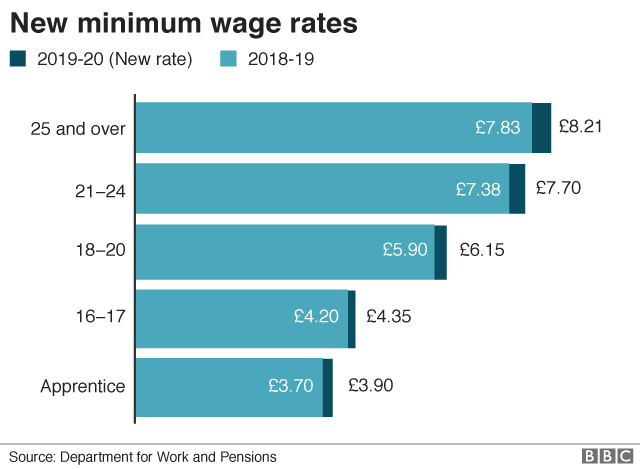
The charity the Living Wage Foundation says the wage level needed to "meet the costs of living" is £9 an hour across the UK and £10.55 an hour in London, external.
Minimum wage effect
Low pay is considered to be hourly pay below two-thirds of the median average across the country. This is the equivalent of £8.52 an hour.
The National Living Wage is lower than this, but the Resolution Foundation said the NLW had a beneficial knock-on effect to other low-paid workers.
The Foundation said that, in 2018, there were 4.7 million employees on low pay, 17.2% of the total. This was the lowest proportion since 1980, and the lowest number since 1997.
"Clearly, the UK still has a significant low pay problem, but it is a problem that is getting smaller after many years of stubbornly refusing to do so," the report said.
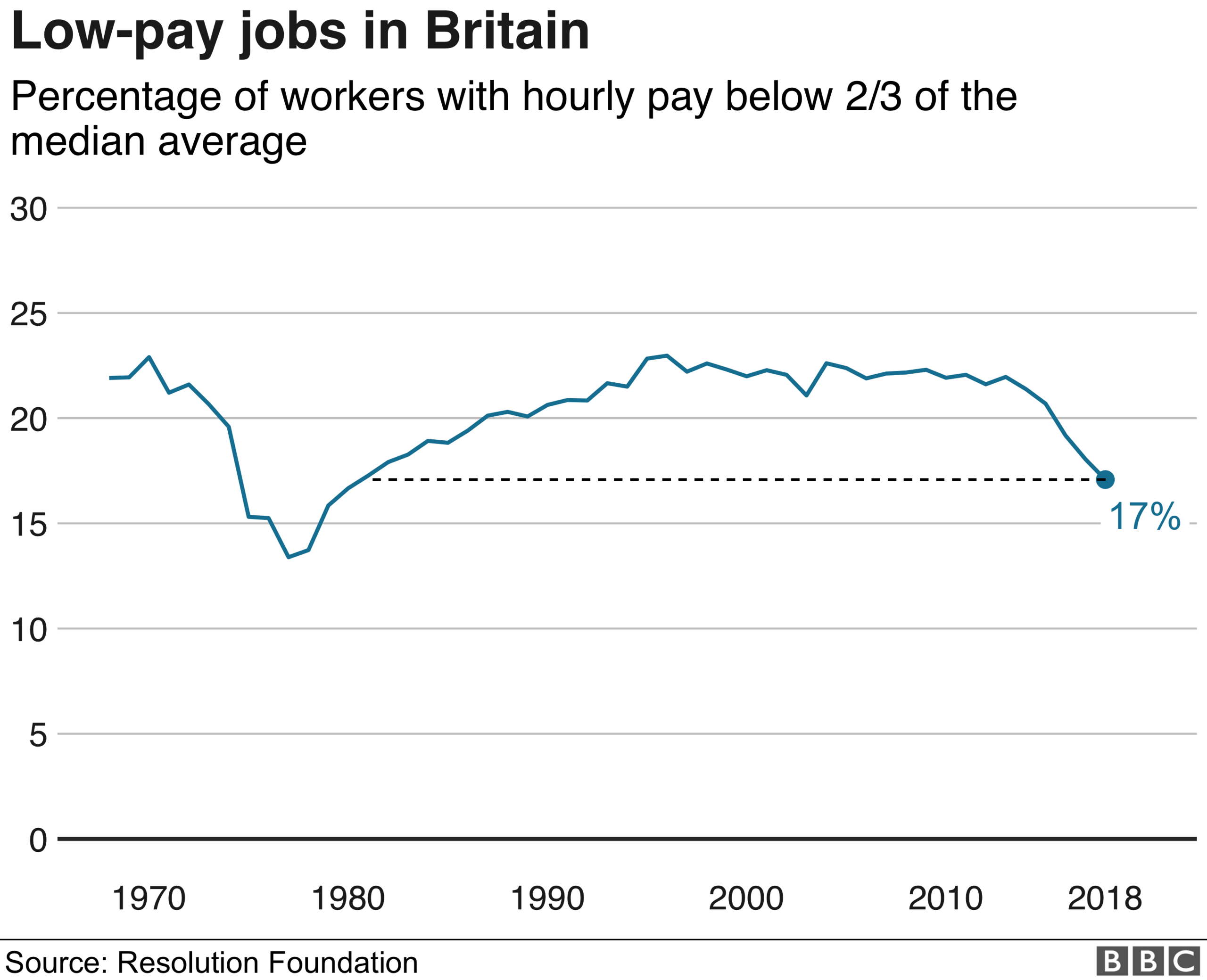
Some 2.8 million (60%) of the 4.7 million low-paid employees in 2018 were women. Owing to the fact they were more likely to be low-paid than men, they saw a greater benefit from the shift to better pay. The number of low-paid women fell by 133,000 between 2017 and 2018.
The biggest falls (110,000) in terms of the type of job were said to have taken place in administrative and support services, and the retail sector.
The think tank said raising the living wage to a level which would end low pay, by setting it at two-thirds of median hourly earnings for workers aged 25 and over, would represent a further "huge change" to the labour market.
"An ambitious but cautious approach that saw the National Living Wage (NLW) continue to rise after 2020 - at a faster pace than the minimum wage has increased over its 20-year history would put Britain on course to eliminate low pay in the middle of the 2020s, while still giving the government room for manoeuvre if economic conditions change," said the report's author Nye Cominetti.
Mr Hammond said that the NLW would be the equivalent of 60% of median average earnings by next year, and that he was "naturally attracted" to getting that to 66% in the future, thus eliminating low pay.
Labour recently said it would extend its plans for a higher £10-an-hour minimum wage to include workers under the age of 18, if it were in government.
Currently, under-18s are entitled to a minimum wage of £4.35 per hour, compared with £8.21 for those aged 25 and over.

National Living Wage v real living wage
The National Living Wage is the legally binding hourly rate for workers aged 25 and over
The real living wage was devised by charity the Living Wage Foundation. It argues the government's National Living Wage is not high enough to meet workers' needs and encourages employers to adopt its more generous, independently calculated rate

Katherine Chapman, director of the Living Wage Foundation, said: "It's positive to see some measures of low pay fall, but there are still around six million jobs paying less than the real living wage - the only rate that's calculated based on what it costs to live. That's millions of families struggling to keep their heads above water, squeezed by rising household bills."
TUC general secretary Frances O'Grady said: "The government should raise the minimum wage to £10 per hour as soon as possible, and young workers, who are most likely to be stuck on low pay, must be given the same rate for the job."

'Bills stack up'
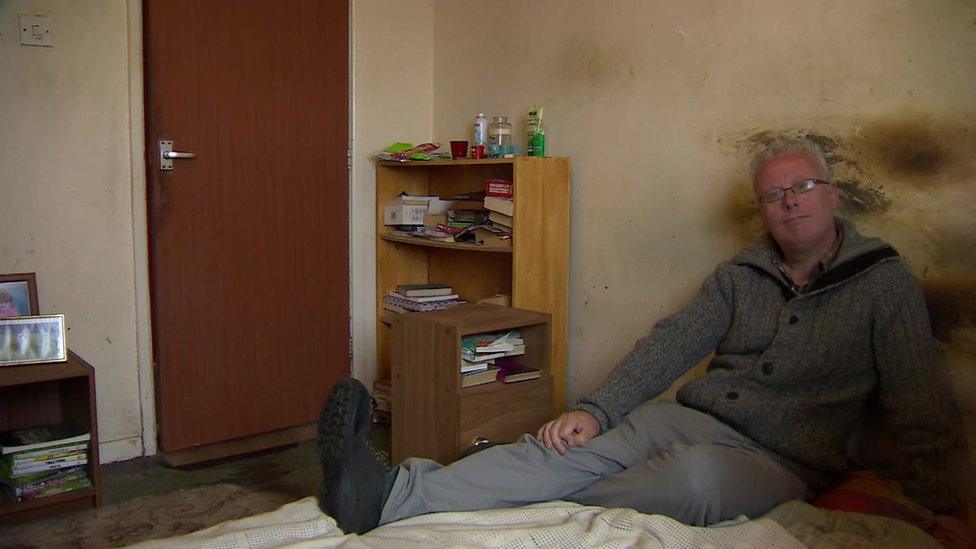
Craig Caldwell works in the retail sector in roles paying the minimum wage and says it is hard work to make ends meet as in his current job he has a guarantee of 7.5 hours a week and the most he has worked in a week is 14 hours. He has turned to Christians against Poverty for help with his debts.
"Bills stack up and over time it gets really hard. For me the problem is paying bills. Your debts mount up because you haven't paid them one month, something else needs paying the next month. You've the rent, the council tax which you have to keep paying, when you're adding food and everything else it becomes a drag".
If he had full-time work on the minimum wage, he could survive - just. "I wouldn't live like a king".
"I'm averaging maybe £90, £100 a week. Universal credit is making it to £560 a month," he says, but after £350 a month of rent that does not leave much to pay off bills.
A higher minimum wage "in theory" would help but he fears that other prices would go up too - and hours could be cut back.
"If (companies) were paying an extra 10% on a wage they will cut 10% of the hours. People are going to end up with less hours so the extra money won't materialise.
"The only solution is going to be protecting the rights of people on minimum wages".

'Raise productivity'
Mr Hammond was asked on the BBC's Today programme whether the minimum wage should continue to rise after 2020.
"We would only do that if we can be confident that we can do that without damaging the employment prospects of people with lower skills," says Mr Hammond.
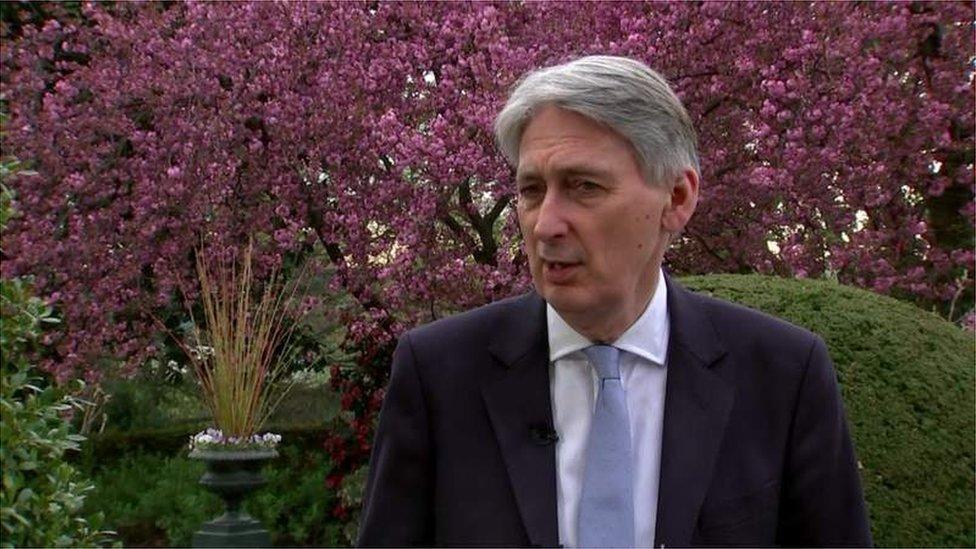
He said initial fears in the 1990s that the minimum wage would cost jobs had not been realised, but said that did not necessarily mean further increases would not be damaging, so he has commissioned a review.
"The key challenge is to support businesses so they can raise their productivity performance as the wages of their employees rise," he says.
"Then you get a virtuous circle, where increases in the minimum wage incentivises improvements in productivity, which in turn allows employers to to pay higher wages still."
- Published14 May 2019

- Published14 May 2019
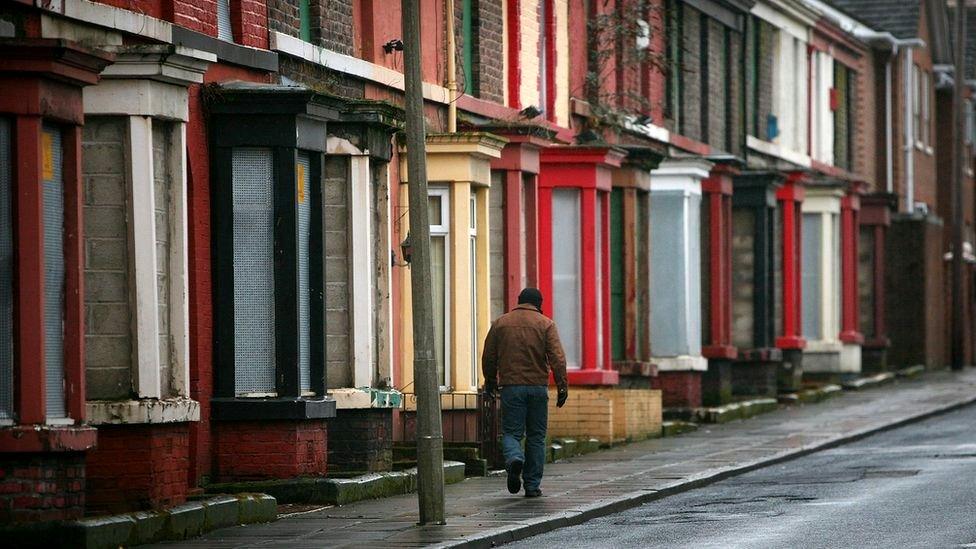
- Published13 May 2019
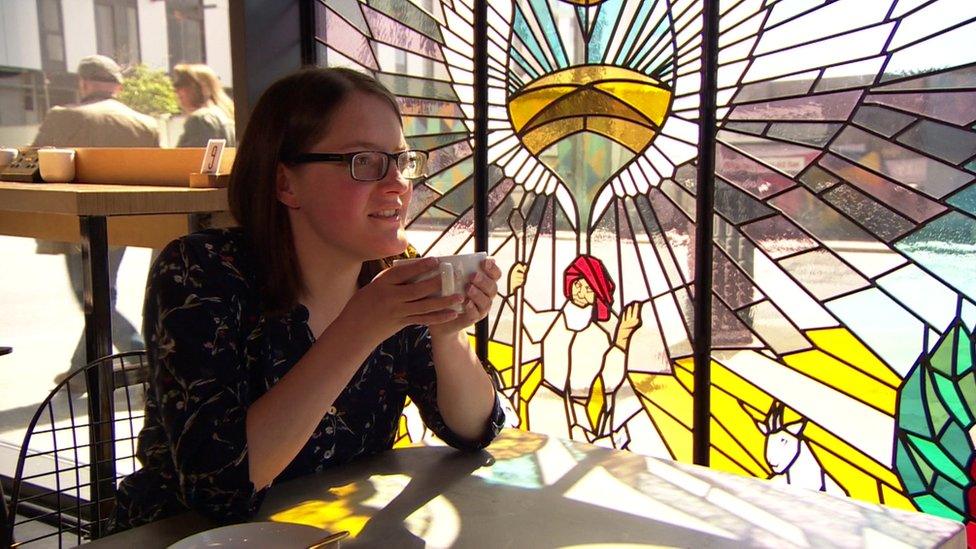
- Published1 April 2019
